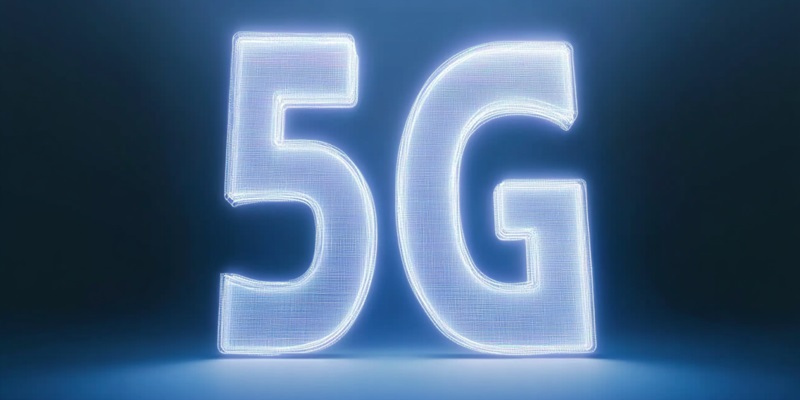The recent award of Malaysia’s second 5G network to U Mobile Sdn Bhd has surprised many, marking a significant development in the local telecommunications landscape. The decision means that the more established players, CelcomDigi Bhd, Maxis Bhd, and Telekom Malaysia Bhd (TM), did not secure the bid, even though they were considered frontrunners. However, these companies will not be entirely disadvantaged, as they still have access agreements with Digital Nasional Bhd (DNB) to offer 5G services.
Industry Response to U Mobile’s Win
Reactions from Major Industry Players
Currently, DNB, which operates Malaysia’s first 5G network, includes stakeholders like Maxis, CelcomDigi, U Mobile, and YTL Communications Sdn Bhd, each holding a 16.3% stake. TA Research observed that U Mobile’s acquisition of the second 5G network likely indicates its exit from DNB, allowing the remaining shareholders to concentrate on cost-optimization strategies. This strategic shift could open doors for U Mobile to partner with other telcos, potentially Maxis, to jointly develop the second network—a collaboration that could shape the competitive dynamics of Malaysia’s telecom sector. The primary stakeholders in DNB might find this development advantageous, allowing them to streamline operations and focus on enhancing service quality.
The Malaysian Communications and Multimedia Commission (MCMC) hopes to see a balanced subscriber base between the two 5G networks, fostering competition. This shift signals the end of the single-wholesale-network model as the sector transitions to a dual-network system. CIMB Research, while initially surprised by the decision, acknowledged the commercial rationale for U Mobile collaborating with either Maxis or CelcomDigi to share rollout costs. The goal is to ensure a more competitive market landscape where consumers benefit from improved services and pricing models, ultimately driving innovation within the industry. This new approach promises to significantly alter the telecom landscape, yet it leaves many questions regarding execution and final outcomes.
Preparing for a Competitive Market
Kenanga Research remains cautious, maintaining a neutral stance until further details are clarified regarding the partnerships, ownership structure, coverage, and timeline of the second 5G network rollout. Nevertheless, it acknowledges that neither CelcomDigi nor Maxis leading the new network potentially limits their capital expenditure commitments. This conservative viewpoint reflects the broader industry’s cautious optimism and the acknowledgment that the full impact of U Mobile’s win will depend heavily on forthcoming strategic decisions and regulatory guidelines.
BIMB Research maintains an "overweight" position on the telecommunications sector, driven by expected improvements in 5G monetization, growth in data center investments, and recovering revenue from tourist and migrant worker usage. The overall sentiment across the research houses is cautiously optimistic, recognizing that while U Mobile’s win is a key milestone, ongoing uncertainties need resolution to fully assess the implications for other mobile network operators. The potential for increased revenue streams and enhanced service offerings keeps optimism alive, albeit with a prudent outlook on future developments.
Future Prospects and Industry Dynamics
Challenges and Opportunities for U Mobile
In summary, the decision to award U Mobile the second 5G network is a pivotal moment for Malaysia’s telecommunications industry, offering both challenges and opportunities. U Mobile now faces the formidable task of building a robust 5G infrastructure that can effectively compete with the established network by DNB. Achieving this will require significant investments in technology, partnerships, and marketing to capture a substantial market share. Additionally, the potential collaborations with other telcos such as Maxis could either serve as a boon or a bane, depending on how these alliances are managed and executed alongside regulatory compliance.
The involved parties await further clarity on several critical factors to determine the full impact of this development. As U Mobile embarks on this ambitious project, the industry will be closely watching the resulting shifts in market behavior and technology adoption. Considering the rapid pace of technological advancement and consumer expectations, U Mobile’s success will largely depend on its ability to innovate and deliver superior services. The path ahead is fraught with challenges but also laden with the promise of transforming Malaysia’s digital landscape.
Broader Implications for the Telecommunications Sector
The recent awarding of Malaysia’s second 5G network to U Mobile Sdn Bhd has come as a surprise to many, marking a significant change in the country’s telecommunications landscape. This decision is especially noteworthy because the more established players like CelcomDigi Bhd, Maxis Bhd, and Telekom Malaysia Bhd (TM) were widely considered the leading contenders for the bid. Despite not securing the new 5G network, these companies are not entirely at a loss. They have existing access agreements with Digital Nasional Bhd (DNB), which allows them to continue offering 5G services to their customers. This ensures competition in the market remains robust and consumers have multiple options for their 5G needs. The entrance of U Mobile into the 5G service provision arena may encourage innovation and better service delivery among all players. This development highlights a dynamic shift in the telecommunications sector, potentially leading to enhanced technological advancements and improved connectivity for Malaysians.

